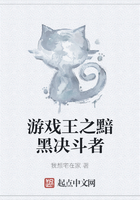It was a long while before he spoke. He was resting his head on his twohands, and looking down into the fire, so she could not read theexpression on his face.
"I"ll not deny but what th" Union finds it necessary to force a man intohis own good. I"ll speak truth. A man leads a dree life who"s not i" th"
Union. But once i" the" Union, his interests are taken care on better norhe could do it for himsel", or by himsel", for that matter. It"s the onlyway working men can get their rights, by all joining together. More themembers, more chance for each one separate man having justice donehim. Government takes care o" fools and madmen; and if any man isinclined to do himsel" or his neighbour a hurt, it puts a bit of a check onhim, whether he likes it or no. That"s all we do i" th" Union. We can"tclap folk into prison; but we can make a man"s life so heavy to be borne,that he"s obliged to come in, and be wise and helpful in spite of himself.
Boucher were a fool all along, and ne"er a worse fool than at th" last."
"He did you harm?" asked Margaret.
"Ay, that did he. We had public opinion on our side, till he and his sortbegan rioting and breaking laws. It were all o"er wi" the strike then."
"Then would it not have been far better to have left him alone, and notforced him to join the Union? He did you no good; and you drove himmad."
"Margaret," said her father, in a low and warning tone, for he saw thecloud gathering on Higgins"s face.
"I like her," said Higgins, suddenly. "Hoo speaks plain out what"s in hermind. Hoo doesn"t comprehend th" Union for all that. It"s a great power:
it"s our only power. I ha" read a bit o" poetry about a plough going o"er adaisy, as made tears come into my eyes, afore I"d other cause for crying.
But the chap ne"er stopped driving the plough, I"se warrant, for all hewere pitiful about the daisy. He"d too much mother-wit for that. Th"
Union"s the plough, making ready the land for harvest-time. Such asBoucher--"twould be settin" him up too much to liken him to a daisy;he"s liker a weed lounging over the ground--mun just make up theirmind to be put out o" the way. I"m sore vexed wi" him just now. So,mappen, I dunnot speak him fair. I could go o"er him wi" a ploughmysel", wi" a" the pleasure in life."
"Why? What has he been doing? Anything fresh?"
"Ay, to be sure. He"s ne"er out o" mischief, that man. First of a" he mustgo raging like a mad fool, and kick up yon riot. Then he"d to go intohiding, where he"d a been yet, if Thornton had followed him out as I"dhoped he would ha" done. But Thornton, having got his own purpose,didn"t care to go on wi" the prosecution for the riot. So Boucher slunkback again to his house. He ne"er showed himsel" abroad for a day ortwo. He had that grace. And then, where think ye that he went? Why, toHamper"s. Damn him! He went wi" his mealy-mouthed face, that turnsme sick to look at, a-asking for work, though he knowed well enoughthe new rule, o" pledging themselves to give nought to th" Unions;nought to help the starving turn-out! Why he"d a clemmed to death, ifth" Union had na helped him in his pinch. There he went, ossing topromise aught, and pledge himsel" to aught--to tell a" he know"d on ourproceedings, the good-for-nothing Judas! But I"ll say this for Hamper,and thank him for it at my dying day, he drove Boucher away, andwould na listen to him--ne"er a word--though folk standing by, says thetraitor cried like a babby!"
"Oh! how shocking! how pitiful!" exclaimed Margaret. "Higgins, I don"tknow you to-day. Don"t you see how you"ve made Boucher what he is,by driving him into the Union against his will--without his heart goingwith it. You have made him what he is!"
Made him what he is! What was he?
Gathering, gathering along the narrow street, came a hollow, measuredsound; now forcing itself on their attention. Many voices were hushedand low: many steps were heard not moving onwards, at least not withany rapidity or steadiness of motion, but as if circling round one spot.
Yes, there was one distinct, slow tramp of feet, which made itself aclear path through the air, and reached their ears; the measured labouredwalk of men carrying a heavy burden. They were all drawn towards thehouse-door by some irresistible impulse; impelled thither--not by a poorcuriosity, but as if by some solemn blast.
Six men walked in the middle of the road, three of them beingpolicemen. They carried a door, taken off its hinges, upon theirshoulders, on which lay some dead human creature; and from each sideof the door there were constant droppings. All the street turned out tosee, and, seeing, to accompany the procession, each one questioning thebearers, who answered almost reluctantly at last, so often had they toldthe tale.
"We found him i" th" brook in the field beyond there."
"Th" brook!--why there"s not water enough to drown him!"
"He was a determined chap. He lay with his face downwards. He wassick enough o" living, choose what cause he had for it."
Higgins crept up to Margaret"s side, and said in a weak piping kind ofvoice: "It"s not John Boucher? He had na spunk enough. Sure! It"s notJohn Boucher! Why, they are a" looking this way! Listen! I"ve a singingin my head, and I cannot hear."
They put the door down carefully upon the stones, and all might see thepoor drowned wretch--his glassy eyes, one half-open, staring rightupwards to the sky. Owing to the position in which he had been foundlying, his face was swollen and discoloured besides, his skin wasstained by the water in the brook, which had been used for dyeingpurposes. The fore part of his head was bald; but the hair grew thin andlong behind, and every separate lock was a conduit for water. Throughall these disfigurements, Margaret recognised John Boucher. It seemedto her so sacrilegious to be peering into that poor distorted, agonisedface, that, by a flash of instinct, she went forwards and softly coveredthe dead man"s countenance with her handkerchief. The eyes that sawher do this followed her, as she turned away from her pious office, andwere thus led to the place where Nicholas Higgins stood, like onerooted to the spot. The men spoke together, and then one of them cameup to Higgins, who would have fain shrunk back into his house.
"Higgins, thou knowed him! Thou mun go tell the wife. Do it gently,man, but do it quick, for we canna leave him here long."
"I canna go," said Higgins. "Dunnot ask me. I canna face her."
"Thou knows her best," said the man. "We"n done a deal in bringing himhere--thou take thy share."












